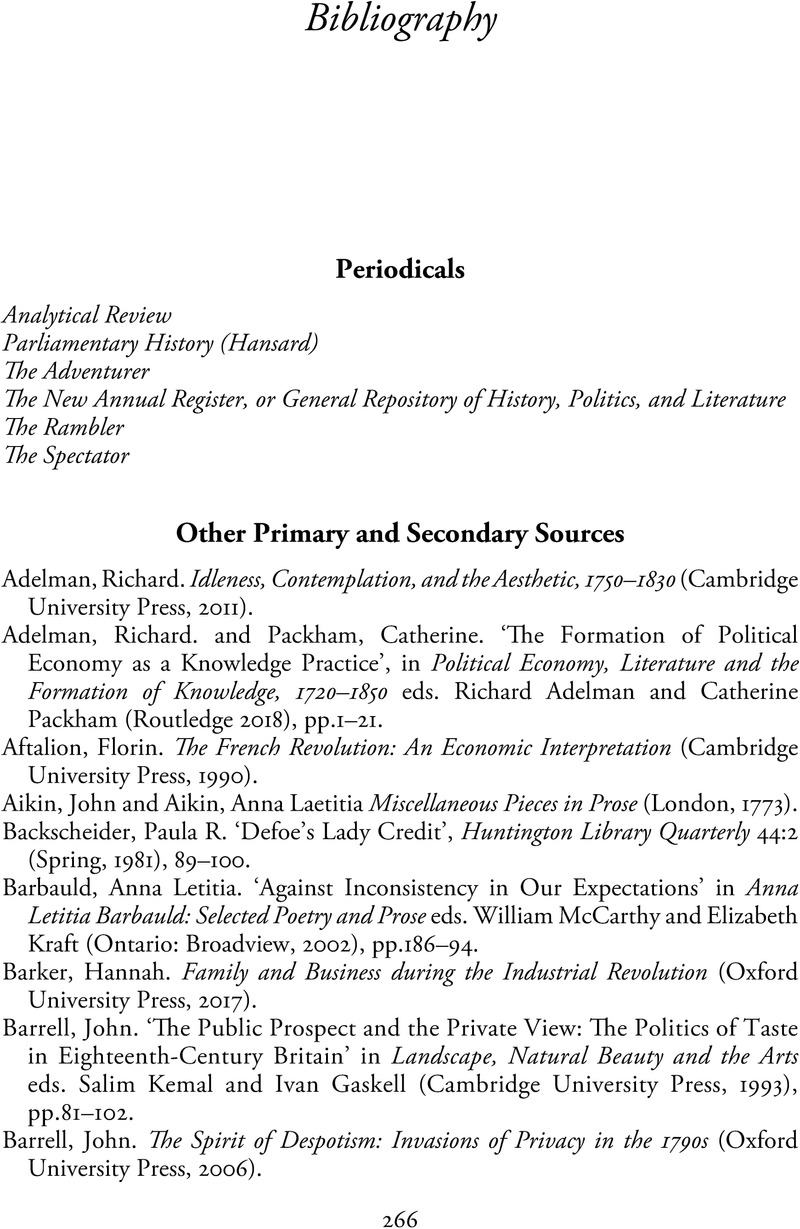Book contents
- Mary Wollstonecraft and Political Economy
- Cambridge Studies in Romanticism
- Mary Wollstonecraft and Political Economy
- Copyright page
- Contents
- Illustrations
- Acknowledgements
- Abbreviations
- Introduction
- Chapter 1 Political Economy and Commercial Society in the 1790s
- Chapter 2 The Engagement with Burke
- Chapter 3 Property, Passions, and Manners
- Chapter 4 Political Economy in Revolution
- Chapter 5 Property in Political Economy
- Chapter 6 Credit and Credulity
- Conclusion
- Notes
- Bibliography
- Index
- Cambridge Studies in Romanticism
- References
Bibliography
Published online by Cambridge University Press: 15 February 2024
- Mary Wollstonecraft and Political Economy
- Cambridge Studies in Romanticism
- Mary Wollstonecraft and Political Economy
- Copyright page
- Contents
- Illustrations
- Acknowledgements
- Abbreviations
- Introduction
- Chapter 1 Political Economy and Commercial Society in the 1790s
- Chapter 2 The Engagement with Burke
- Chapter 3 Property, Passions, and Manners
- Chapter 4 Political Economy in Revolution
- Chapter 5 Property in Political Economy
- Chapter 6 Credit and Credulity
- Conclusion
- Notes
- Bibliography
- Index
- Cambridge Studies in Romanticism
- References
Summary

- Type
- Chapter
- Information
- Mary Wollstonecraft and Political EconomyThe Feminist Critique of Commercial Modernity, pp. 266 - 276Publisher: Cambridge University PressPrint publication year: 2024

